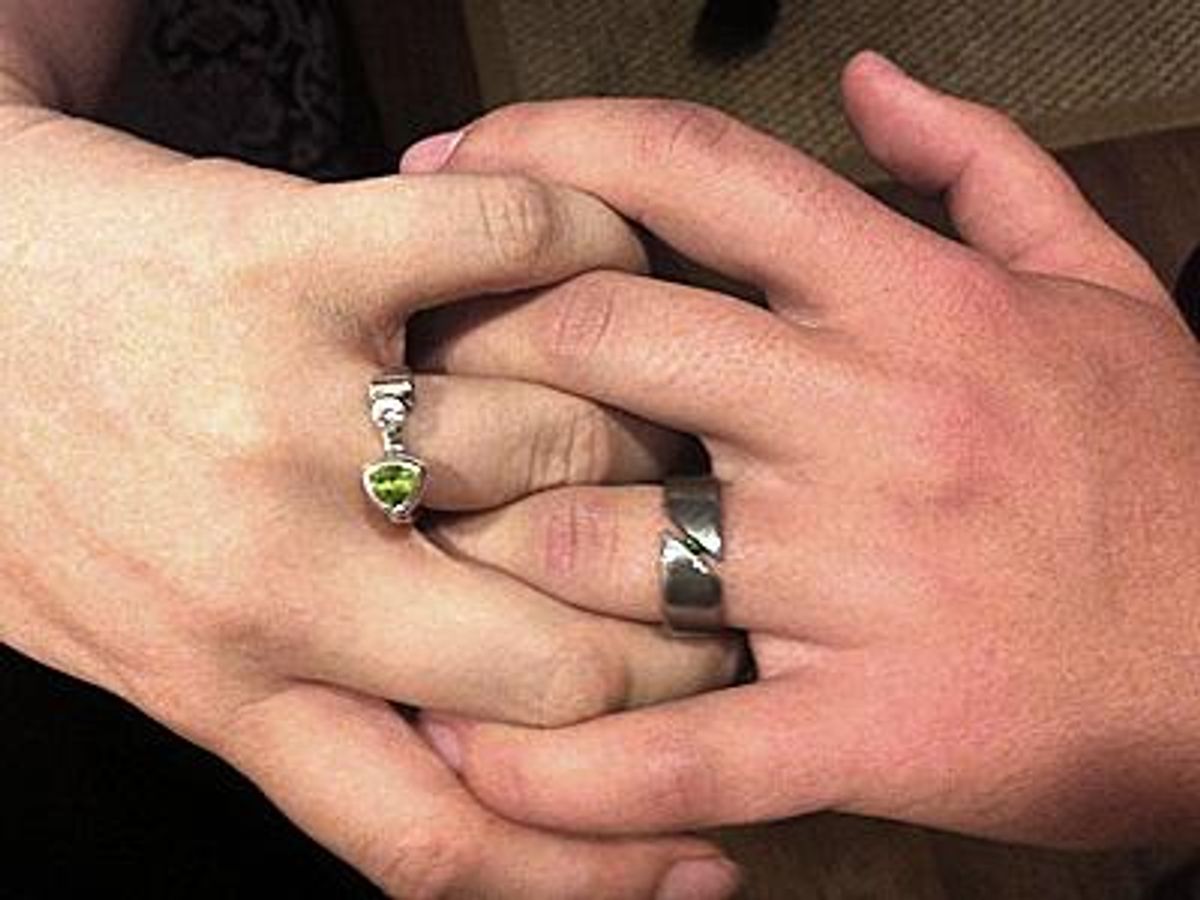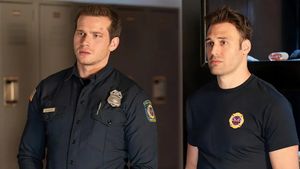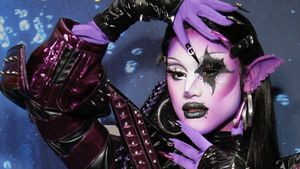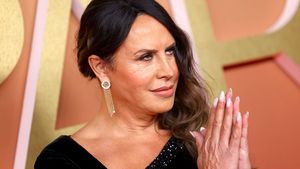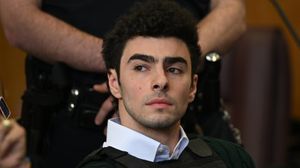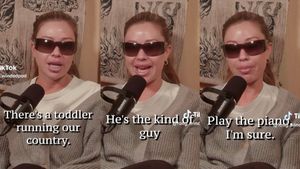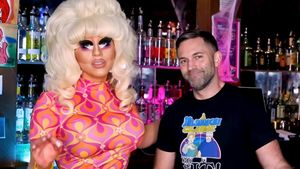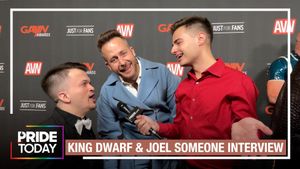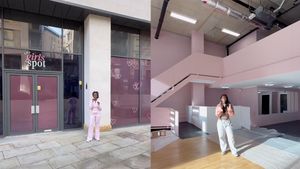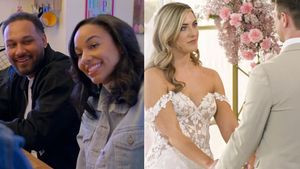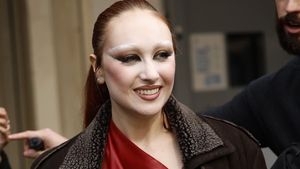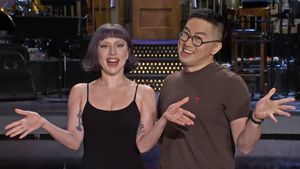As a queer journalist and self-described legal nerd, I've been following the current national discussion on marriage equality with a keen ear. I voraciously consumed the audio transcripts from last week's Supreme Court hearings on marriage cases and emerged cautiously optimistic about their outcome.
Back in 2009, I sat in Judge Vaughn Walker's San Francisco courtroom, live-blogging the landmark testimony in the federal challenge to California's Proposition 8. Friends -- like Ryan Kendall, a victim of so-called ex-gay therapy -- and strangers testified before the court about the harm caused by denying a segment of the population the right to marry; how it further stigmatized an already downtrodden minority, and the very real legal harm this denial wreaked on children of same-sex couples. Judge Walker asked probing questions that led me to be unsurprised when his final ruling issued a scathing indictment of the blatantly unconstitutional nature of putting a minority's already-granted rights up for a popular vote.
But even then, I knew that marriage equality wasn't really my fight. As a young radical queer fresh out of journalism school, I could see the trajectory -- and heard the sound legal arguments -- that encouraged me that this battle was already halfway won.
Admittedly, I didn't give much thought to my personal position about marriage itself. I was -- and remain -- convinced that civil marriage is a civil right, but it wasn't one that resonated strongly with me.
Then I met my future spouse.
It was 2011, and I was attending my statewide equality organization's LGBT People's Caucus at the YMCA of the Rockies in Estes Park, Colo. We stole glances at one another across the room and awkwardly exchanged good-natured jibes, finally ending with me sending a Facebook message with my phone number and a request to call if this person was interested in "making new friends." The rest, as they say, is history. Our romance was swift and fierce, and we fell hard for one another. Within a year, my partner asked me to marry him.
Yes, marry him.
My partner is a transgender man, meaning he was assigned female at birth, but now identifies and presents as male, including a male gender marker on his driver's license and other identifying documents. He describes his sexual orientation as queer.
By contrast, I am a cisgender (nontrans) queer femme. When we met, I had long, wavy hair and plentiful curves, and was frustrated about constantly being read as straight. Being visibly queer is an important part of who I am, the work I do, and the change I hope to help foster in the world.
When he proposed to me -- in a grand, romantic gesture on a secret rooftop patio in downtown Denver -- I was so eager that I actually said "Yes" before he'd presented the ring.
But as we moved forward to plan our life together, we both began to feel a creeping sense of guilt. How could we be so excited to get married when so many of our friends and chosen family were denied the right?
We happen to be an opposite-gender queer couple, which means every state in the union would recognize our marriage. I've had straight coworkers definitively declare that because my partner is male, that means we're a straight couple. Of course, we know our politics, our minds, our bodies, and our love life are anything but straight.
But I do recognize the privilege that comes with passing as a "straight" couple. We are afforded rights that are unjustifiably denied to many of our friends and family because he happens to be male and I happen to be female. Granted, had he and I met a year or two earlier, we might be in a very different position, as we might have been a lesbian couple. But the truth remains that we are who we are, and we are proud of that.
But how can we rationalize being so eager to enter into an institution that we readily admit is heteronormative, sexist, and oppressive?
To help unpack this nuanced argument, I turned to a fellow married queer couple I met back in Colorado, where we were all active in the freshly victorious effort to establish civil unions. (Coloradans passed a constitutional amendment banning same-sex marriage in 2006, so civil unions are the best legally viable option for the time being.)
Jace Woodrum is the former deputy director for One Colorado, the statewide equality organization that led the successful fight to make civil unions a reality in March. Jace identifies as a queer transgender man, who last September legally married his cisgender, bisexual wife, Addison. Jace and Addison were first married prior to Jace's transition, as a lesbian couple, before their family and friends in a ceremony on May 30, 2009. After Jace began his medical transition, the couple made their marriage legal on the fifth anniversary of their first date -- September 21, 2012, in Colorado.
When I asked how the couple came to terms with their decision to marry, Addison offered a reality check about the rights and privileges conferred only by marriage.
"It really came down to Jace's surgery," Addison said. Jace had a double mastectomy in October 2012 to remove his breasts. "It was necessary for our family at that time to have those rights," explained Addison.
Jace said his parents were initially unaccepting of his trans identity. In fact, he was worried that if something went wrong during his surgery, doctors were required to contact his parents, rather than his partner.
"My parents probably would have said, 'put the boobs back on,'" Jace said. "It was really hard to then decide that we were going to take advantage of the protection of marriage while we knew hundreds of people who couldn't do the same. What did it for me was saying to myself, I know I'm going to continue fighting this for other people. I'm committed to making sure all people are able to marry."
Nevertheless, the Woodrums said they did encounter pushback after they decided to get legally married. They said nothing was overt, but they sometimes heard snippy comments from fellow LGBT people.
But that's something Addison was prepared for and willing to acknowledge.
"I just tried to own the privilege," she said. "I wanted to prove that I knew that it was fucked up that I could get married, and I knew, on some level, that it was fucked up that we did get married."
I too struggle with the implications and privilege inherent in taking advantage of this heteronormative institution of marriage. A legally recognized marriage automatically presumes my partner to be the father of any children we might have -- an important legal distinction given our not-so-distant plans to start a queer little family.
"Those are considerations that weighed heavy on us," said Jace, whose wife plans to carry the children they hope to have. "Ultimately we decided to take advantage of an institution that is inherently flawed in many ways."
Indeed, the institution of marriage, as legislated by the state, was created to establish property and inheritance rights, and in many cases, to powerfully subjugate women.
As Scot Nakagawa explained why he supports marriage equality as a civil right, but not as a strategy to achieve structural change, he wrote that "extending marriage rights to LGBT people does little or nothing to address the structure of oppressive family laws and values in society. It also does very little to change the core of the conservative agenda which is, fundamentally, about power and control."
But perhaps we can queer marriage. Perhaps couples like myself and my partner, Jace and Addison, and thousands of other married queer couples across the nation can change what it means to be married. We can buy into the institution in an explicit effort to change it from the inside. We can become living proof that marriage should be about partnership, equity, and family.
And while we're at it, I refuse to be silent about my deep-seated desire for equality in all areas of life, not just marriage. While my partner and I happen to be uniquely positioned to take advantage of this right that should be afforded to everyone, I believe there are bigger, more important fights on the horizon.
"The fight for marriage has dominated our movement's resources for so long," Jace told me on the phone from South Carolina, where he and Addison relocated last year. "Money is funnelled in, and then it all goes away when we win. Marriage is a critical piece of advancing equality, but I'd like to see as much investment, as much focus, and as much energy spent on other issues, too."
And indeed, marriage equality seems to be a foregone conclusion by this point. As Time magazine declared on its cover last week, "Gay marriage has already won."
Regardless of whether the Supreme Court strikes down the Defense of Marriage Act -- which I have faith that it will do -- or Proposition 8, there is an ideological and political tsunami in support of the freedom to marry, and no barriers of fear or bigotry are going to hold it at bay.
Even Rush Limbaugh admits that marriage equality activists have won the war.
So where do we go from here? And how do we, as a community and as individuals, continue to speak up about injustice, inequality, and the issues that really matter most to our community?
The only way to move forward with a truly radical, inclusive movement is to actively, passionately strive for solidarity with our fellow marginalized communities.
We have tremendous work to do in strengthening ties with our undocumented and immigrant allies, whose plight mirrors our own in more ways than I can count. We must raise our voices and use some of that much-debated "political power" Chief Justice John Roberts claims gays and lesbians now possess to stand strong alongside our allies who are undocumented, unafraid, and wholly deserving of equal, fair treatment as fellow citizens.
I believe LGB -- and especially T -- people deserve fair access to health care and to nondiscrimination protections in employment and housing. I believe we must work to raise the voices of our historic heroes, who have for too long been silenced and erased from the books of history.
I believe we, as adults within the LGBT community, owe it to our courageous youth -- who today are coming out younger and with more conviction than most of us could ever fathom -- to ensure that they are safe, respected, and given the tools needed to succeed in school.
These are the challenges that face us. Now that we're well on our way to affirming a universal right to marry, we must take action in solidarity with other marginalized communities. It's time to turn our attention to those people within our community who have been silently standing beside us, waiting for us to get past our own privilege and fight for the rights of those who need it most.
We are not finished as activists and compassionate human beings once marriage equality is won. In fact, it is just the opposite. Now that we've made this incremental step toward equality, it's high time we leverage the attention that mass media has focused on us to highlight and bring an end to injustice wherever we find it.
We know what it's like to be the scapegoated minority. We know what it's like to be told that our loves, our lives, ourselves are "less than." So we know better than most how damaging and reductive this logic can be, and the devastating effect it can have on our collective humanity and psyche. Preserving that human dignity for not only ourselves and our family but for those who stand alongside us and share our fights must be our new goal.
Marriage equality is not the end-all, be-all. Rather, it is just the first step in our collective drive for fully realized equality. So while we celebrate this hard-earned victory, let us not forget that the fight is not over -- not until everyone is truly equal under the law.
